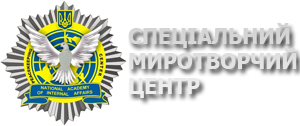Write a good CV
Get Prepared
Before starting to write, take time to make a self-assessment on paper. Outline your skills and abilities as well as your work experience and extracurricular activities.
Remember that writing your CV is a process. The CV is not 'done' until you have retired and stopped volunteering. To minimize the burden of job searching, keep it updated with every job or job function change. When applying for a job, one size does not fit all; you will want to carefully check the vacancy announcement for keywords, etc. and make any necessary adjustments. Also, ensure that your accompanying cover letter is well crafted and perfect.
Draft Your CV
- Highlight qualities that set you apart. They might be used as a Headline.
- You may consider 'selling' yourself with a strong but short career objective: think about the specific value you offer the employer and state it concisely in your career objective. A good objective might look like this: 'Accomplished and talented elections expert seeking to leverage extensive background in elections planning and operations and transitional democracy into a senior role in an NGO. Extremely motivated for a career change and eager to contribute to an organization's elections planning division'.
- Use words wisely: use minimum words to provide maximum information and avoid repeats.
- Use numbers to your advantage: numbers and concrete examples can validate your achievements. Quantitative data is easier to remember; use it instead of just listing your skills to make your case. Include the number and kind of people you were responsible for or indicate timeframes, e.g.
- Project scheduled for four months completed in three;
- USD 3 million mobilized from the European Commission for a local governance programme;
- Preparation and roll-out of streamlined process for programme implementation support, resulting in a 20% increased programme delivery in 2005.
- Concentrate on key words and use them to emphasize your achievements. Key words vary from one sector to another and must be carefully and appropriately used in your CV (as well as your cover letter).
- Keep your paragraphs brief. Two different formats may describe your experience:
- Functional: emphasize skills and talents, cluster your experience under headings that highlight your competencies and skills, e.g. leadership, communication, research, etc. Best for those with little relevant job experience;
- Chronological: emphasize work experience, beginning with the most recent.
- Focus on outcomes and find out what aspects of your education, experience or skills will be most attractive to your potential employer. List coursework, area(s) of specialty, specific skills or knowledge that would be of interest.
- Highlight the details in your education, experience, skills and activities that demonstrate your capabilities and match an employer's needs in key areas.
- Showcase your role: Did you work on your own? As part of a team? In a supervisory position? As a team leader? Remember, timeframes count, so be sure to address these questions: What were the dates or length of time you worked on a project or job? Did you work full-time or part-time? If part-time, what percentage of time did you spend on that work?
- The best way to present your experience is to use examples. Consider word choice carefully. Choose adjectives and nouns that describe you positively and accurately, e.g. able to, analytical, bilingual, capable, competent,effective, efficient, experienced, flexible, fluent, handle stress, motivated,reliable, responsible or work well with.
Evaluate your Résumé / CV
Hold your résumé / CV at arm's length and see how it looks. Ask yourself questions like:
- Is the page too busy with different fonts (Courier, Times New Roman, Arial), type styles (bold, italics, etc.), sizes (10, 11, 12), borders, lines, bullets or boxes?
- Is the information spaced well, i.e. not crowed on the page? Margins should be 2.5cm / 1 inch.
- Is there too much white space? Is it too text rich?
- Is important information easy to find?
- Does every word count or add value? (If not, delete it).
- How would your eyes feel if you had to read it many times?
When you have reviewed your CV, have it proofread and reviewed by someone else. The more people see it, the more likely that misspelled or unnecessary words and awkward phrases will be corrected or removed.
For more information visit:
www.jobweb.com
www.usajobs.com
www.cvtips.com



